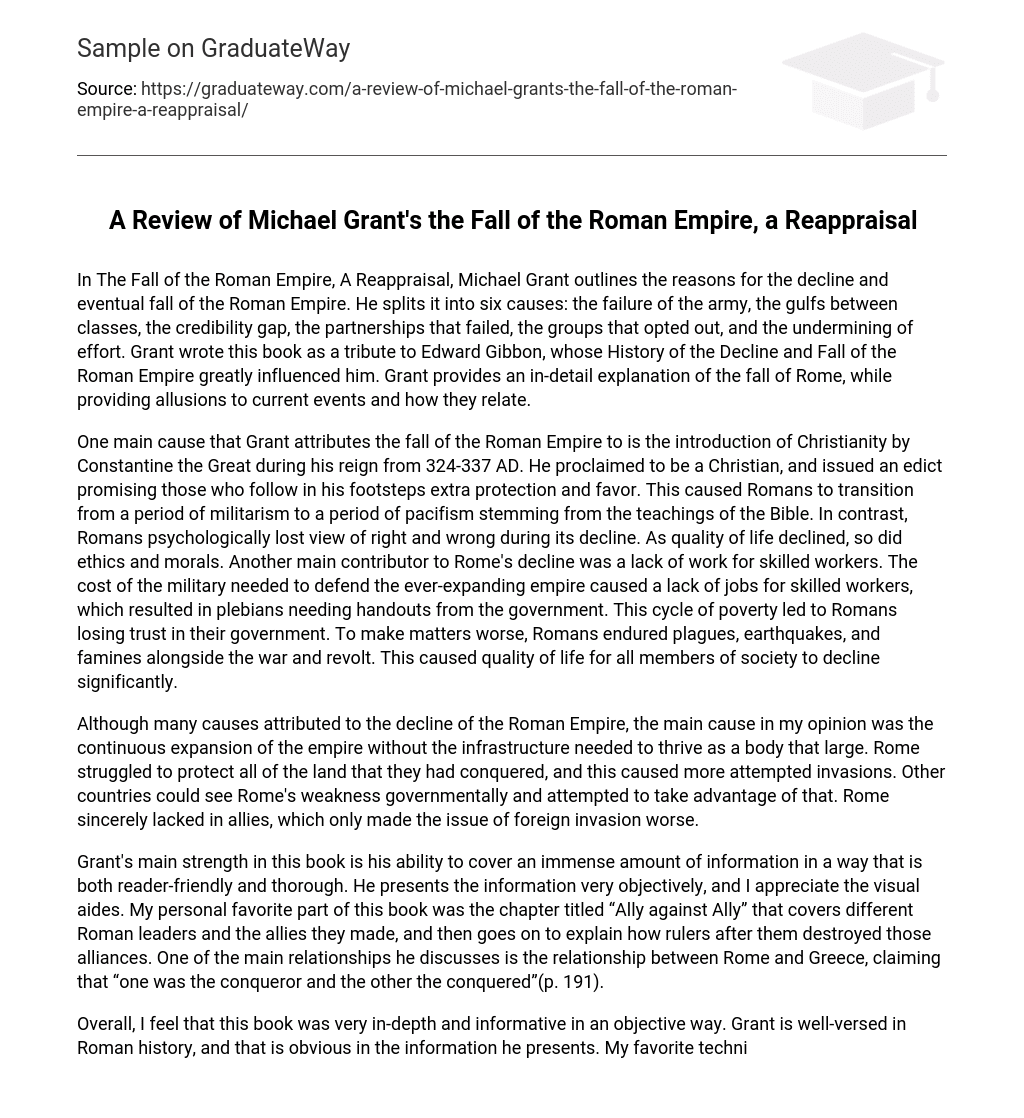Michael Grant’s The Fall of the Roman Empire, A Reappraisal, presents a comprehensive analysis of the reasons behind the decline and ultimate downfall of the Roman Empire. Grant identifies six primary causes: the army’s failure, the widening social disparities, the loss of credibility, unsuccessful alliances, voluntary exclusion of certain groups, and the erosion of effort. The book serves as a tribute to Edward Gibbon and acknowledges his significant influence on Grant. Additionally, Grant delves into a detailed examination of Rome’s fall, drawing parallels with contemporary events to establish relevance.
Grant attributes the fall of the Roman Empire to the introduction of Christianity by Constantine the Great, who ruled from 324-337 AD. Constantine proclaimed himself a Christian and offered extra protection and favor to those who followed suit. This shift caused Romans to transition from a militaristic society to a pacifistic one influenced by biblical teachings. As Rome declined, Romans also lost their understanding of right and wrong. Declining quality of life resulted in a decline in ethics and morals. Another factor contributing to Rome’s decline was the lack of employment opportunities for skilled workers. The cost of maintaining a military for the expanding empire left few jobs available, forcing plebeians to rely on government handouts. This cycle of poverty eroded trust in the government. Additionally, Romans faced plagues, earthquakes, famines, and ongoing war and revolt, further deteriorating their quality of life.
Despite various factors contributing to the fall of the Roman Empire, I believe that its continuous expansion without adequate infrastructure was the primary cause. Rome faced difficulties in protecting all the conquered lands, leading to repeated invasion attempts. The government’s weakness made other nations perceive Rome as vulnerable and therefore, they sought to exploit that. Additionally, Rome suffered from a lack of allies, further exacerbating the problem of foreign invasion.
Grant’s strength in this book lies in his skill to effectively and comprehensively cover a vast amount of information in a manner that is both accessible and detailed. He presents the information in an unbiased manner, and the inclusion of visual aids is appreciated. I particularly enjoyed the chapter titled “Ally against Ally,” which delves into various Roman leaders and the alliances they formed, followed by an exploration of how subsequent rulers dismantled those alliances. A significant focus of Grant’s analysis is the relationship between Rome and Greece, with Grant asserting that “one was the conqueror and the other the conquered” (p. 191).
Overall, I believe that this book provided a comprehensive and objective exploration. Grant’s extensive knowledge of Roman history is evident in the information he presents. I particularly enjoyed his technique of linking contemporary historical events to the events in the Roman Empire. In terms of global history, this book effectively outlines the factors that led to the downfall of Rome, making it appealing to readers interested in both leisurely reading and academic study.





